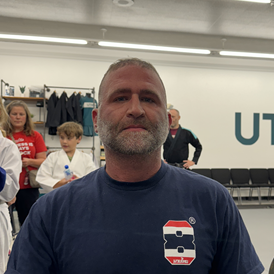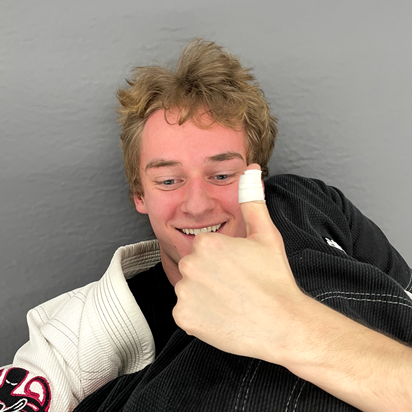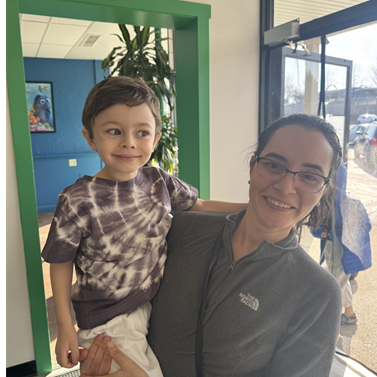
As you roll and flow across the mat, adrenaline surging, your mind is just as active as your body. Welcome to the world of Brazilian Jiu-Jitsu (BJJ) – a journey that trains strength, skill, and resilience while simultaneously delivering a powerful neurochemical workout for your brain.
But how and why does BJJ have this remarkable impact on the mind? I’d like you to please read on to understand the science behind the mind-body connection in BJJ.
The Brain on BJJ: Neurochemicals in Action
To comprehend how BJJ affects the brain, you need to understand neuroscience. Your brain communicates via neurotransmitters and hormones called neurochemicals. Different neurochemicals regulate your mood, behavior, cognition, and health.
BJJ powerfully stimulates the release of critical neurochemicals that make you feel good, motivate you, enhance cognition, and build relationships. Here’s a deep dive into the main neurochemicals influenced by BJJ.
The Pleasure and Motivation Molecules: Endorphins, Dopamine, and Serotonin
Endorphins: The Euphoric High of BJJ
Ever finish a brutal BJJ training session feeling very happy and energized? You can thank endorphins – the body’s natural opioid pain relievers.
Intense exercise causes your hypothalamus and pituitary gland to release endorphins. These endorphins bind to opioid receptors in the brain to block pain signals and generate euphoria. The more grueling the workout, the bigger the endorphin rush.
BJJ provides the perfect ENDORPHIN STORM. Constantly grappling, straining, and exertion under challenging conditions prompt a release of huge endorphins. This minimizes discomfort while amplifying positive emotions during and after training. You feel satisfied, energized, and significantly less stressed.
But endorphins have another vital role in BJJ – helping you push through challenges without quitting. Endorphins allow you to keep training productively past the point of exhaustion or discomfort. This teaches mental and physical resilience, which translates into everyday life.
So in BJJ, endorphins are much MORE than just a “feel good” molecule – they enable you to grow.
Dopamine: The Reward Rush of BJJ Breakthroughs
Ever finally nail a tricky sweep or submission after endless failed attempts? Recall that euphoric rush of accomplishment tingling through your body. Say hello to dopamine – the quintessential reward and motivation neurochemical.
Dopamine activates the brain’s “reward center” and reinforces the sense of achievement you feel with every BJJ breakthrough, from minor victories to tournament wins. Dopamine release motivates you to continue putting in the hard work needed to progress.
The challenging nature of BJJ creates the perfect environment for surges of rewarding dopamine. Because techniques require meticulous attention and repetition, finally executing them successfully prompts an extra intense dopamine rush.
These intense rewards motivate you to keep fine-tuning your game. Dopamine compels you to return to class, again and again, to master new techniques and level up your skills. The sense of satisfaction keeps you committed to long-term skill development.
Serotonin: The Balancing Force
While endorphins give an immediate high during training, serotonin provides lasting stability. This neurotransmitter helps regulate mood by decreasing depression and anxiety.
How does BJJ aid serotonin levels? Two ways:
First, the physical intensity of BJJ workouts stimulates serotonin production and release. Just 20-30 minutes of exercise can boost serotonin for multiple hours. Consistent training means steady serotonin levels.
Second, the camaraderie of BJJ provides ongoing social support, elevating serotonin. Stable social connections are as meaningful as exercise. Your BJJ community becomes an extended family, giving you consistent social bonding outside of class.
Boosted serotonin improves resiliency against stress, anxiety, and depressed moods. It also helps regulate sleep, appetite, and libido. Overall, BJJ’s serotonin impact leaves you feeling balanced and positive.
The Social Neuropeptides: Oxytocin and Endogenous Opioids
BJJ is a martial art centered around constant human connection – from grips to holds to guard passes. All this touch and intimacy promotes the release of oxytocin and endogenous opioids, called neuropeptides. These neuropeptides forge tight social bonds between teammates.
Oxytocin: The Cuddle Hormone
Oxytocin enhances feelings of trust, bonding, and empathy. It’s released by intimate touches like hugs, hand-holding, and sex – thus the nickname “cuddle hormone” or “love hormone.”
BJJ training involves continuous touch, connection, and closeness with partners. This prompts ongoing oxytocin release that helps you rapidly form tight bonds with new training partners. You quickly build friendships and come to rely on teammates like family.
These social bonds motivate you to keep training and hold you accountable. You want to show up for your team and not let your training partners down. Your shared struggles on the mat strengthen these oxytocin-fueled bonds even further.
Endogenous Opioids: Touch, Trust, and Teamwork
Light exercise causes endorphin release, but heavy exertion combined with social bonding activates a different opioid system – endogenous opioids.
Endogenous opioids reinforce teamwork and social connectivity. They are stimulated by synchronized movements in a bonded group – like soldiers marching or dancing together.
BJJ training powerfully activates endogenous opioids. You and your partner flow in a synchronized dance as you roll. The constant physical connection and shared intensity reinforce trust and cooperation. You feel part of a cohesive team working toward mutual growth. This unity motivates you to keep training with your trusted partners.
Real-World Impact Backed by Research
Now we’ve explored the main neurochemicals influenced by BJJ training – endorphins, dopamine, serotonin, oxytocin, and endogenous opioids. But does this neurochemistry lesson translate into real mental health benefits for BJJ practitioners? Absolutely.
Countless BJJ trainees report better ability to handle stress, elevated mood, reduced anxiety and depression, enhanced feelings of meaning and purpose, and an overall greater sense of well-being.
And empirical research backs this up. Studies demonstrate martial arts like BJJ can:
-
Reduce stress and improve stress resilience.
-
Lessen feelings of tension, confusion, anger, and depression.
-
Increase vigor while decreasing fatigue.
-
Boost energy, happiness, and satisfaction with life.
So the neurochemical impact of BJJ translates into measurable improvements in overall mental health and well-being.
Added Brain Benefits: Cognition, Memory, and Neuroplasticity
Beyond just making you “feel good,” BJJ enhances cognitive function – thinking, reasoning, and memory skills. Here’s how:
Improved Cognition
BJJ is a game of strategy. You constantly problem-solve during roles and analyze your weaknesses after. Over time, this strengthens crucial cognitive skills like:
-
Focus
-
Executive function
-
Working memory
-
Visualization
-
Cognitive flexibility
This crossover improves concentration, multitasking, and quick thinking in daily life.
Enhanced Memory
Learning endless techniques also builds memory power. Memory is a “use it or lose it” faculty. Remembering countless details engrains habit patterns and strengthens memory networks in the brain.
Increased Neuroplasticity
BJJ also enhances neuroplasticity – your brain’s ability to rewire itself. BJJ forces your brain to build new neural pathways as you learn new movements. This increased neuroplasticity allows faster learning across all domains.
Research shows martial arts like BJJ support cognitive health and brain connectivity as we age, potentially slowing age-related decline. So BJJ keeps your mind sharp and flexible too.
Starting Your Neurochemical and Cognitive Transformation
Are you convinced of the mental benefits of BJJ? Want to experience this transformation for yourself? Just step onto the mats!
Here are some tips to maximize your mind-body training:
Commit Fully
Make BJJ a consistent habit, not a casual hobby. At least three days a week is ideal to reap the total neurochemical and cognitive rewards.
Keep Training Challenging
Continually learn new techniques and push your abilities. The bigger the challenge, the more significant the neurochemical surge and cognitive benefits when you overcome it.
Focus on Steady, Small Improvements
Avoid getting discouraged by slow progress. Remind yourself small daily wins activate dopamine and lead to significant gains over time.
Build Bonds
Connect with training partners. Social support enhances serotonin, oxytocin, and endogenous opioids to reduce stress and motivate you.
Stay Positive
Trust the process. Some days will be challenging, but the highs are worth the occasional lows on the path to life-changing growth.
At , our passionate coaches are invested in your physical AND mental transformation. Let us guide you on a journey to build strength, skill, community, and brainpower through the magnificent training of BJJ!
Wrap up
BJJ delivers an unparalleled combination of physical intensity and mental stimulation. Training prompts the release of endorphins, dopamine, serotonin, oxytocin, and endogenous opioids – neurochemicals that boost mood, motivation, social bonding, and cognition.





































































